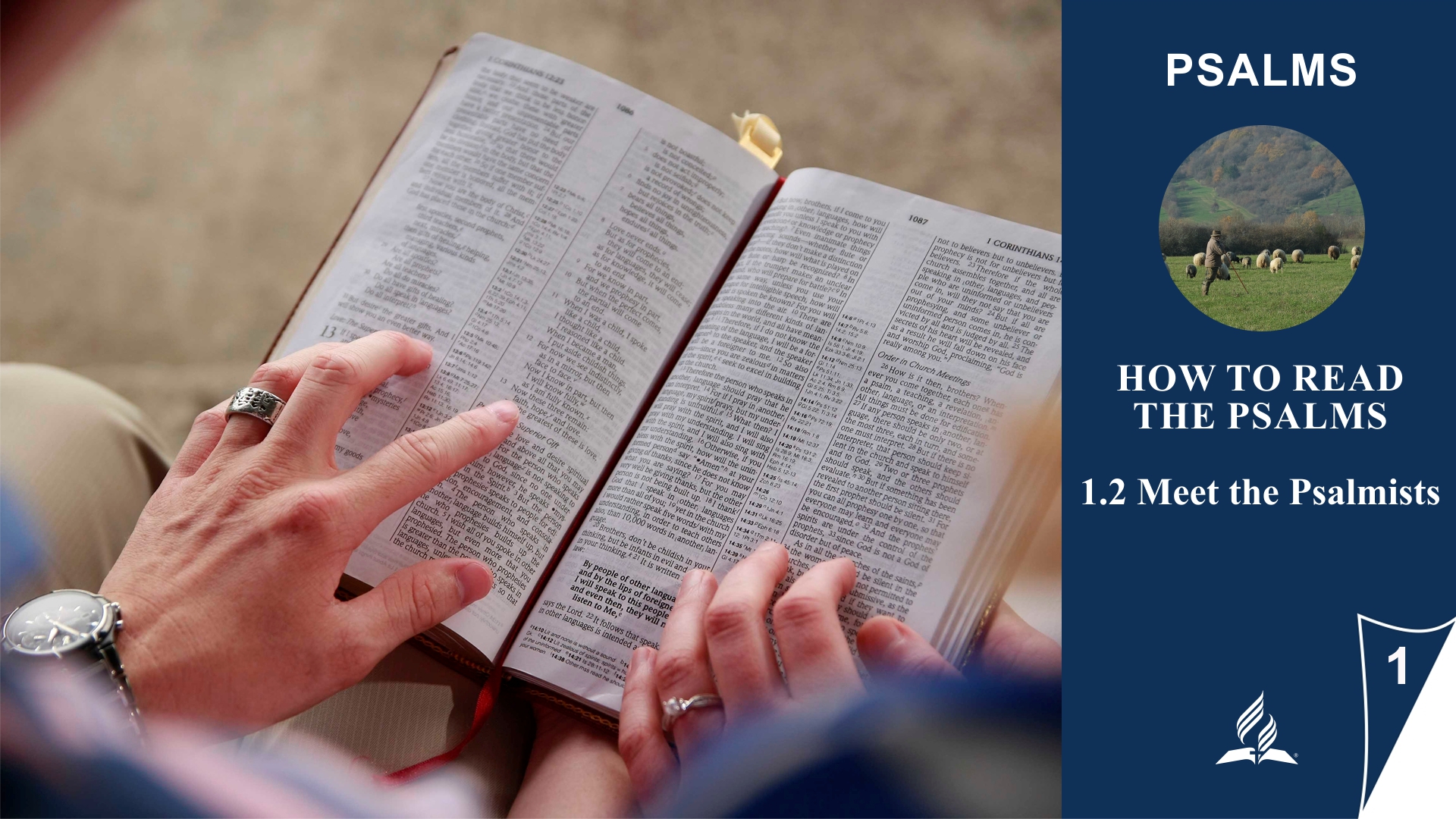

1.2 Meet the Psalmists
Read Psalm 25:2–6; 42:2; 75:2; 77:2; 84:2–3; 88:2–4; and 89:2. What do these Psalms reveal about the experiences of their authors?
Here are the specified verses from the mentioned Psalms along with a brief summary of their messages:
-
Psalm 25:2–6:
-
The author seeks guidance and wisdom from God. He acknowledges his dependence on God and trusts that God leads those who fear Him and hope in His mercy.
-
-
Psalm 42:2:
-
The Psalmist expresses his thirst for God, likening his longing for God to a deer’s desire for water. This indicates a deep spiritual hunger for the presence of God.
-
-
Psalm 75:2:
-
The Psalmist praises God as the just Judge. He recognizes that every position and power ultimately comes from God and that it is God who oversees justice and injustice.
-
-
Psalm 77:2:
-
The author speaks of his soul struggles and distress. He reflects on God’s actions in the past and seeks comfort and hope in the midst of difficulties.
-
-
Psalm 84:2–3:
-
The Psalmist shows a deep longing for the presence of God and the temple. He describes the blessing experienced by those who dwell in God’s house.
-
-
Psalm 88:2–4:
-
This Psalm is particularly somber, as the author speaks of deep suffering and nearness to death. He pleads with God to hear his prayer, even in the midst of sorrow and darkness.
-
-
Psalm 89:2:
-
The Psalmist praises God’s faithfulness, which endures from generation to generation. He acknowledges God’s power and love, affirming trust in God’s eternal promises.
-
These Psalms reveal the diversity of experiences the authors went through. They reflect the highs and lows of faith, from deep soul struggles to joyful praise. The Psalms are sincere and honest in portraying human experiences before God, serving as timeless expressions of faith that remain relevant today.
How can we find hope and comfort knowing that even faithful people like the Psalmists struggled with the same issues we face?
Knowing that even faithful people, like the Psalmists in the biblical Psalms, struggled with the same challenges, doubts, and difficulties as we do can be a source of hope and comfort for several reasons:
-
Divine Presence in Human Needs: The Psalms show that it’s okay to openly talk to God about our concerns, fears, and doubts. The Psalmists were sincere in their prayers, even when faced with deep suffering, darkness, and despair. This shows that God seeks closeness to us amid our human needs.
-
Faith Journey is a Process: The experiences of the Psalmists reflect a faith journey that includes highs and lows, joys and sorrows. Seeing that people of faith also go through trials can strengthen our resolve that our faith journey won’t always be easy but that God accompanies us on this journey.
-
God’s Faithfulness Amid Difficulties: Despite the challenges faced by the Psalmists, many Psalms emphasize God’s faithfulness. The authors recognized that God’s love and faithfulness remain constant even in the darkest times. This encourages us to trust in God’s promises and character, even during challenging times.
-
Community in Suffering: Awareness that other believers face similar struggles creates a sense of spiritual community in suffering. Identifying with the Psalmists helps us realize that we are not alone. Sharing common challenges creates a connection and reinforces the belief that we can trust in God together.
-
God’s Response to Prayer: Many Psalms show that God responds to the prayers of believers, even if not always immediately or in the expected manner. The Psalmists’ trust in God’s sovereign action gives us hope that our prayers are heard, and God acts in wisdom and love.
In conclusion, we can draw from the Psalms that faith doesn’t mean we are exempt from difficulties. Instead, our faith is a resource that helps us navigate through these challenges, with the assurance that God is with us and understands our needs.
(Visited 13 times, 1 visits today)




















